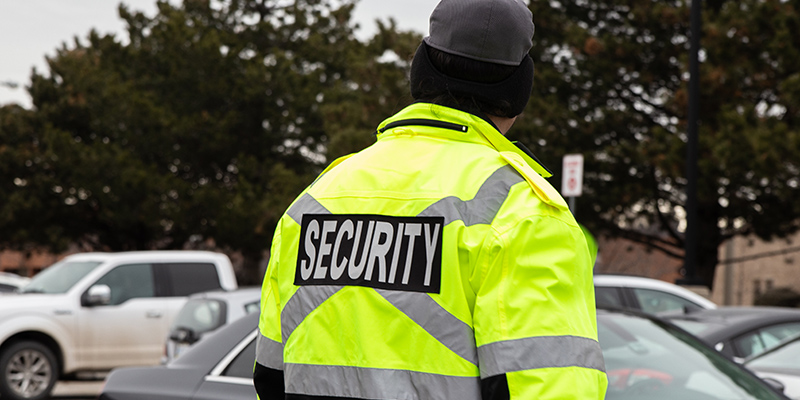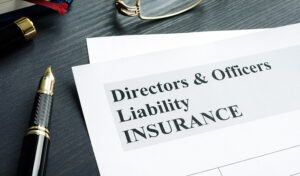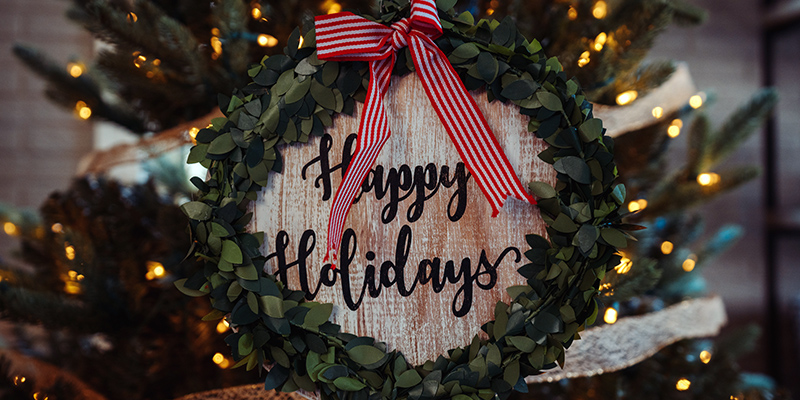HOA Vendors: How To Select Vendors And End Contracts?
Choosing the right HOA vendors is vital to the community’s well-being. But, it can be hard to pick a contractor with the right experience and skills the community needs. Let’s take a look at the selection process to help your HOA choose a fitting vendor.
What Are HOA Vendors For?
Condo and homeowners associations exist to maintain property values and boost the community’s quality of life. To do this, they must hire vendors to maintain the neighborhood’s common areas and keep it aesthetically pleasing. The right vendors can keep facilities and amenities clean and in good condition.
What HOA Vendors Do Communities Need?
It takes a lot to run a planned community. As such, there are several HOA vendors communities need to hire. These include but are not limited to the following:
- Landscaping Vendors. These vendors cover landscaping needs like caring for the lawn and outdoor facilities. It can also include the maintenance of sports surfaces and artificial grass.
- Developers, Builders, and Engineers. These vendors can help HOAs with large repairs and projects.
- Commercial Painting. These vendors paint and repair building interiors and exteriors.
 Fencing, Entrances, and Security Services. These vendors help monitor and improve the community’s security.
Fencing, Entrances, and Security Services. These vendors help monitor and improve the community’s security.- Financial Management and Accounting. These contractors help HOAs with bookkeeping, budgeting, and other financial management tasks.
- Collections and Legal Services. HOA vendors can assist associations with collecting HOA fees, outstanding dues, and closing fees.
- Debris Removal and Tree Service. These contractors help clear fallen trees, remove debris, and prune mature trees.
- Plumbing and Backflow Testing. These maintenance vendors repair and maintain drainage and plumbing systems.
- Pressure Washing. These maintenance vendors clean and prepare exterior surfaces.
- Gutter and Roofing Services. These maintenance vendors replace and replace gutter and roof systems.
- HVAC Services. These maintenance contractors maintain, repair, and install heating, cooling, and insulation systems.
- Waterproofing and Pool Services. These maintenance vendors repair and maintain pool systems and winterize them.
- Snow Removal. These services clear walkways and roads of accumulated hail or snow.
- Towing. These services tow stalled cars and clear accident sites.
These are but a few services a homeowners association might hire. Depending on the community’s needs, there are many more, like masonry and phone answering services.
Which Is Better: Employees or Independent Contractors?
Associations have two options when it comes to hiring help. They can choose between hiring a regular employee or an independent contractor. Full-time workers receive a regular salary and fulfill their tasks daily. For example, a self-managed HOA may want to hire an HOA manager or maintenance person full-time. Meanwhile, independent contractors are better at fulfilling large-scale tasks and projects.
Regular employees are often good for fulfilling smaller roles that require ongoing attention. But, they do have their disadvantages. That’s because employees get sick and need vacation days. In these scenarios, the HOA must temporarily hire part-time workers or contractors to fill the role.
Moreover, employees are slightly more complex to work with as the HOA must verify their legal residency. HOAs must also find good referrals and conduct background checks. As a result of these many caveats, communities often prefer to hire independent contractors over employees.
Independent contractors are what most people think of when talking about HOA vendors. HOAs prefer these over employees because they have niche skills and years of industry experience. They are also licensed, insured and are less likely to become liabilities to the association.
Moreover, they’re not as complicated to hire as less paperwork is needed. HOAs only need to provide form 1099 to the vendor. They also do not need to report their status or activities as much to the IRS. Some examples of independent contractors include landscapers, roofers, and HOA attorneys.
How to Hire HOA Contractors
Communities should not randomly hand out an HOA vendor request for proposal to every contractor they find. That’s because doing so can confuse the HOA board and give them too many proposals to sift through. Instead, HOAs should carefully consider various factors to choose the right vendor.
1. Keep It in Writing
Contracts should never be verbal. Instead, HOAs should carefully draft and review contracts when choosing a vendor. All of the terms, including the work to be performed, its duration, and the price, must be written in an agreement. This will eliminate confusion and discrepancies between the vendor and HOA.
2. Obtain Vendor Bids
Homeowners associations should obtain at least three vendor bids from third-party contractors. This allows the HOA to compare the terms and choose the vendor that offers the right price and services. It gives the association a good idea of the value these services provide.
Moreover, multiple states have laws that require HOAs to receive more than one bid. Hence, it’s generally better to obtain multiple bids. Otherwise, the HOA may risk breaking their local laws.
3. Review Each Bid
HOA vendors may be tempted to add various beneficial services to their unnecessary proposals. Hence, it’s important to review each bid and ensure the offering matches your request. If the bid has extra services that the HOA may need later on, ask the vendor to provide a separate bid for them. Moreover, ask if the bid expires so the HOA board can deliberate further.
4. Ask for References
HOAs should ask the vendor for references from past clients. This can help the association understand what kind of experience the vendor provides. It’s also a good idea to ask for before-and-after photo references of past projects. These may help the homeowners association see what kind of output they can expect. Finally, HOAs can also look at online reviews left by past customers.
5. Verify Credentials, Insurance, and Licenses
 Reliable vendors will usually provide licensing and bonding proof to reassure their clients. Otherwise, homeowners associations should ask for these documents to prove that the vendor is qualified. This is crucial as credentials may determine how well the vendor performs. Moreover, it’s especially important for tasks that require technical skills, such as property development or engineering.
Reliable vendors will usually provide licensing and bonding proof to reassure their clients. Otherwise, homeowners associations should ask for these documents to prove that the vendor is qualified. This is crucial as credentials may determine how well the vendor performs. Moreover, it’s especially important for tasks that require technical skills, such as property development or engineering.
Apart from this, HOAs should also prioritize organization and transparency. Remember to keep all the documentation you receive from rejected bids. That’s because these will prove the association’s due diligence in fulfilling its fiduciary duty to maintain the community.
6. Choose the Right Price
HOAs often fall into the trap of simply settling for the lowest bidder, but this would be a mistake as the lowest price doesn’t guarantee the best quality. Instead, homeowners associations should choose bids that offer the best value for the money. The best one may be the cheapest or most expensive. However, the best value bid is usually somewhere in the middle.
7. Schedule a Meeting
Once the HOA has narrowed down its options, it’s time to schedule a meeting. This is especially crucial for new vendors the community has never worked with. Moreover, it’s important for larger tasks and projects.
Pay attention to how the vendor’s staff carries themselves during the meeting. You want vendors that are forthcoming, punctual, and professional. They should also be ready with all the licenses, references, and insurance you requested.
How to End HOA Vendor Contracts
Homeowners associations may want to end vendor relationships that don’t work well, so how should they go about this? Here are some things to keep in mind.
1. Talk to the Contractor
HOAs usually develop long-term relationships with their vendors. But, the relationship may deteriorate when vendors fail to perform their duties. It can also go south when they miss deadlines, unexpectedly issue change orders, or do a poor job.
If the HOA has a long-standing relationship, it’s best to communicate with the vendor first. They might simply be undergoing financial difficulties or management changes. Both parties may be able to work out an agreement. This should be the first course of action to maintain vendor relationships.
2. Withhold Full Payment
Most contracts allow the homeowners association to withhold the final progress payment when the work is incomplete. This should prompt the vendor to complete their unfinished work. Once the work is completed, the board can finally assess the output before releasing the payment.
That said, HOAs should refrain from rehiring vendors that leave unfinished work. These vendors have already shown you how poorly they perform and how little they value the relationship. More often than not, it’s best to move on and find a new contractor.
3. Check the Contract Terms
 When a vendor performs poorly and cannot be negotiated with, HOAs may want to terminate the agreement. But, are homeowners associations allowed to end vendor contracts for poor performance? Can they fire a vendor for a botched job?
When a vendor performs poorly and cannot be negotiated with, HOAs may want to terminate the agreement. But, are homeowners associations allowed to end vendor contracts for poor performance? Can they fire a vendor for a botched job?
It depends on the contract terms. HOAs should review the agreement and its provisions for termination. Some contracts allow termination due to poor performance. However, some do allow for termination without cause as long as there is a 30-day notice.
It’s also important to review the contract with an attorney. Otherwise, the HOA may end contracts illegally and have to face a lawsuit. Once reviewed with an attorney, the HOA can end the agreement according to the contract’s terms.
4. Document the Contractor’s Work
It can be hard to terminate a contract without mutual consent. The vendor may even sue the HOA for breach of contract. Hence, it’s important to document the vendor’s poor performance while the contract is ongoing. Document everything with photos and videos. Moreover, keep track of the dates, times, and staff involved. The HOA can use this as evidence during the lawsuit.
Choose HOA Vendors Wisely
Finding good HOA vendors can be tricky, and it’s certainly worth the effort. A reliable vendor can timely deliver high-quality work to homeowners associations. They’re invaluable to the community’s operations. Moreover, hiring the right vendor from the start can help the HOA avoid problems and potential lawsuits.
Condo Manager offers automated HOA management systems to HOA management companies, condo associations, and homeowners associations. Call us at 800-626-1267 or contact us online today for a free demo!
RELATED ARTICLES:



 Did you know that
Did you know that  Security guards are not omnipresent beings. They are usually posted to a specific area and given responsibilities to fulfill. But, when you hire a security company, they can also supply guards who can conduct regular patrols. Foot and vehicle patrols are great because they can help identify crime and rule violations as they occur. An HOA security patrol also works to ensure the community remains a safe place to live in, as residents tend to feel more secure when there are trained professionals watching over the neighborhood.
Security guards are not omnipresent beings. They are usually posted to a specific area and given responsibilities to fulfill. But, when you hire a security company, they can also supply guards who can conduct regular patrols. Foot and vehicle patrols are great because they can help identify crime and rule violations as they occur. An HOA security patrol also works to ensure the community remains a safe place to live in, as residents tend to feel more secure when there are trained professionals watching over the neighborhood. The great thing about hiring security guards is that you can post them 24/7. Security firms offer different packages, with shifting schedules allowing for round-the-clock safety and patrolling. While it is true that people tend to feel more uncomfortable under the cloak of darkness, there are plenty of things that can happen in the daytime, too. In fact, almost
The great thing about hiring security guards is that you can post them 24/7. Security firms offer different packages, with shifting schedules allowing for round-the-clock safety and patrolling. While it is true that people tend to feel more uncomfortable under the cloak of darkness, there are plenty of things that can happen in the daytime, too. In fact, almost 
 While the homeowners association technically pays for HOA insurance, the funds really come from the owners. Homeowners have an obligation to pay
While the homeowners association technically pays for HOA insurance, the funds really come from the owners. Homeowners have an obligation to pay  Property Value and Replacement. Buildings that belong to the HOA must be insured for the property’s full replacement cost. There are three
Property Value and Replacement. Buildings that belong to the HOA must be insured for the property’s full replacement cost. There are three 
 Reviewing and amending the governing documents
Reviewing and amending the governing documents Community associations come in different shapes and forms. Whether or not an association needs the help of a professional manager will depend on its unique situation. There are many communities that get by just fine
Community associations come in different shapes and forms. Whether or not an association needs the help of a professional manager will depend on its unique situation. There are many communities that get by just fine 
 Who says HOA New Year’s Eve party ideas need to be complicated and fresh? Even a modest dance party can do wonders for community spirit. The great thing about a dance party is that it caters to all ages. Kids, adults, and elderly residents alike can participate and have fun. Add some refreshments, a few snacks, and perhaps even a disco ball, and you’ve got yourself a banger!
Who says HOA New Year’s Eve party ideas need to be complicated and fresh? Even a modest dance party can do wonders for community spirit. The great thing about a dance party is that it caters to all ages. Kids, adults, and elderly residents alike can participate and have fun. Add some refreshments, a few snacks, and perhaps even a disco ball, and you’ve got yourself a banger! Transformation is a key element of New Year’s celebrations, so it makes sense to plan a masquerade ball. To attend, guests must wear masks and formal attire.
Transformation is a key element of New Year’s celebrations, so it makes sense to plan a masquerade ball. To attend, guests must wear masks and formal attire. One of the best HOA New Year’s Eve party ideas for kids is to throw a daytime party outdoors. Kids often need to be in bed by a certain time or they get sleepy before midnight.
One of the best HOA New Year’s Eve party ideas for kids is to throw a daytime party outdoors. Kids often need to be in bed by a certain time or they get sleepy before midnight.
 If your neighborhood does not have enough parking space for guests, ask them to carpool instead. Your neighbor may also be able to lend you a parking space or two. Noise rules also likely exist in your community. This usually means no loud noises beyond a certain time, so keep the laughter and holiday music on low volume.
If your neighborhood does not have enough parking space for guests, ask them to carpool instead. Your neighbor may also be able to lend you a parking space or two. Noise rules also likely exist in your community. This usually means no loud noises beyond a certain time, so keep the laughter and holiday music on low volume. Leave a light on inside to give the illusion of someone at home. To save on energy, install timers that turn on your lights at specific hours.
Leave a light on inside to give the illusion of someone at home. To save on energy, install timers that turn on your lights at specific hours. 5. Plan for Food
5. Plan for Food
 Holiday decoration restrictions are fair if the reason is to promote the health and safety of the community.
Holiday decoration restrictions are fair if the reason is to promote the health and safety of the community.
